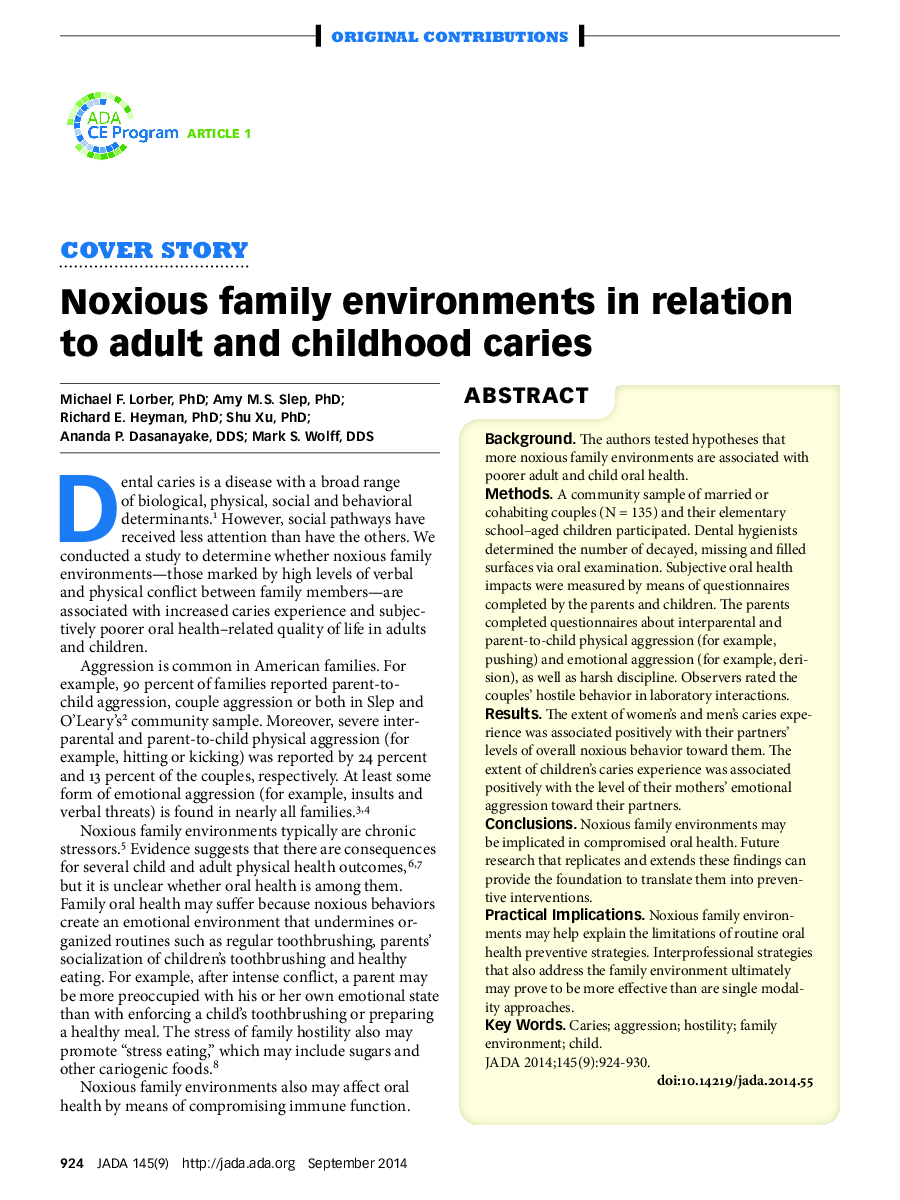| Article ID | Journal | Published Year | Pages | File Type |
|---|---|---|---|---|
| 3137180 | The Journal of the American Dental Association | 2014 | 7 Pages |
ABSTRACTBackgroundThe authors tested hypotheses that more noxious family environments are associated with poorer adult and child oral health.MethodsA community sample of married or cohabiting couples (N = 135) and their elementary school–aged children participated. Dental hygienists determined the number of decayed, missing and filled surfaces via oral examination. Subjective oral health impacts were measured by means of questionnaires completed by the parents and children. The parents completed questionnaires about interparental and parent-to-child physical aggression (for example, pushing) and emotional aggression (for example, derision), as well as harsh discipline. Observers rated the couples’ hostile behavior in laboratory interactions.ResultsThe extent of women's and men's caries experience was associated positively with their partners’ levels of overall noxious behavior toward them. The extent of children's caries experience was associated positively with the level of their mothers’ emotional aggression toward their partners.ConclusionsNoxious family environments may be implicated in compromised oral health. Future research that replicates and extends these findings can provide the foundation to translate them into preventive interventions.Practical ImplicationsNoxious family environments may help explain the limitations of routine oral health preventive strategies. Interprofessional strategies that also address the family environment ultimately may prove to be more effective than are single modality approaches.
